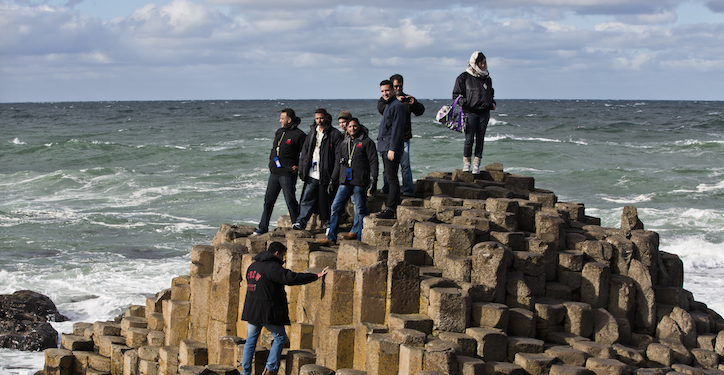An increasing number of non-European Economic Area students are choosing Ireland for their higher education, with numbers rising by 45% between 2013 and 2017. However, Ireland’s future attractiveness could be hampered by difficulties around immigration procedures, finding accommodation and employment.
News and business analysis for Professionals in International Education
Have some pie!
Ireland: Non-EEA student numbers up 45% in five years
 The proportion of students in Ireland from non-EEA countries increased from 9,325 in 2013 to 13,519 in 2017. Photo: Brian Morrisson/ Tourism Ireland
The proportion of students in Ireland from non-EEA countries increased from 9,325 in 2013 to 13,519 in 2017. Photo: Brian Morrisson/ Tourism Ireland According to a report entitled ‘Attracting and Retaining International Students’ carried out by the European Migration Network, the proportion of students in Ireland from non-EEA countries has grown steadily each year, up from 9,325 in 2013 to 13,519 in 2017.
“Obstacles persist for some students, including delays in immigration registration”
By contrast, the proportion of the student body represented by EU students remained static during that period, “only growing by 0.1 percentage point overall between 2013 and 2017”, according to the report.
Among the students issued a permit for study in a full-time higher education program in 2017, 25% were from the US, 17% from India, 15% from Brazil, 14% from China and 5% from Canada.
Overall, China was the top country of origin of non-EEA students enrolled in full-time higher education each year between 2013 and 2017.
In a statement, the report’s lead author Sarah Groarke concluded that Ireland is “successfully attracting and retaining increased numbers of higher-level non-EEA students”.
In order to retain skilled international graduates, Ireland allows non-EEA students with an honours degree or higher to remain for 12 to 24 months after studies to look for work under the Third Level Graduate Programme.
Almost 2,090 non-EEA students were granted permission to stay in the country under the TLGP in 2017, up from around 650 in 2012, while the number of non-EEA graduates who obtained an employment permit following their studies also increased from 48 in 2013 to 871 in 2017.
“However, our report highlights obstacles persist for some students including delays in immigration registration, securing affordable student accommodation and transition to employment after graduation,” Groarke added.
She said that non-EEA students had reported difficulty finding work because employers are not always aware that they are entitled to work under the TLGP.
Additionally, the author pointed to minimum income thresholds for employment permits as a potential barrier for non-EEA graduates seeking employment, which were described as prohibitive for those “who may require more than one year to achieve enough experience to earn a sufficient income” to meet them.
Immigration registration delays were also an issue: “Often there are no appointments available on the online booking system,” Groarke explained.
“Students have reported that delays cause stress and anxiety in relation to their legal status and have a negative impact on their academic experience in Ireland.”
“Ireland has much to offer, evidenced by the increase in the number of students coming”
Speaking with The PIE News, International Student adviser at University College Dublin Colum Cronin said he welcomed the EMN report, and that positive changes in Ireland’s immigration system – such as the abolition of the re-entry visa – had helped Ireland along its way to becoming very competitive in the race for international students.
“Ireland has much to offer, evidenced by the increase in the number of students coming to Ireland, but we cannot ignore the challenges these students face whilst studying here,” he added.
“We have seen positive immigration changes this year, and I hope that these will continue and solutions will be found to make booking and immigration appointment easier.”
Still looking? Find by category:


